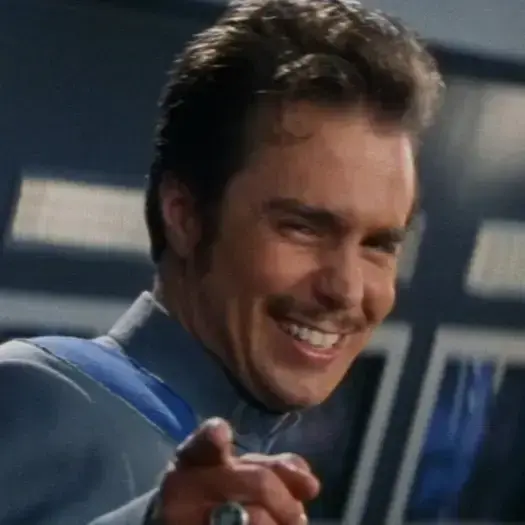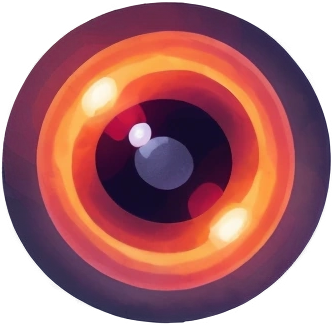

Shit man they had universal healthcare in Star Trek’s 2024. In Star Trek’s 2024 the tech billionaire decided to help the homeless. We’re doing worse in the real world than what Star Trek depicted as being near the absolute nadir of human society.


Shit man they had universal healthcare in Star Trek’s 2024. In Star Trek’s 2024 the tech billionaire decided to help the homeless. We’re doing worse in the real world than what Star Trek depicted as being near the absolute nadir of human society.


It is, but I’ve seen this question asked earnestly so many times I just can’t tell anymore…


The hell could O’Brien have done to get such a reaction?
Nothing. Tom just wanted to scare O’Brien off. Tom was worried O’Brien knew Will well enough that an extended conversation would blow his cover.
Based and friendpilled


No one on your instance has subscribed to it, so it’s not federating content in. If you subscribe, it will populate.


I agree it would be nice if people would post there more, which is why I’m suggesting it
You’re preaching to the choir. “Concede the point” is a figure of speech which means the speaker is going explore an assumption despite not believing it themselves.
My point is that the whole “capitalism is the best economic system we know about because humans are greedy” argument is sophistry. It doesn’t even make sense in the context of its own flawed premise.
Let’s concede the point: humans are inherently greedy and selfish.
But greed and selfishness are bad, right? We want less greed and selfishness in the world.
Given these two assumptions—humans are greedy, greed is bad—shouldn’t we architect society to explicitly disincentivize greed?


The instances hosting active Star Trek communities didn’t exist during the previous season of Discovery, so Lemmy isn’t a great way to gauge relative interest.
On Reddit, the /r/startrek discussion thread for 4x02 has 1.1k comments and 4x03 has 600 comments while the thread for 5x03 only has about 400 comments. This seems to support your hypothesis.
I have long held that Season 5, Episode 2 of The Next Generation is the best episode to “test” if you’ll like Star Trek or not. It is a generally well-liked and well-reviewed episode, but more than that, from both a story and a character standpoint it is representative of what your average Star Trek episode is generally about.
So, my recommendation is to watch that one episode and report back.


After four seasons, Discovery still can’t figure out how to pace a full season arc. The A-plot was a miniature Humanity on Trial story which Trek has done to death, and the rest was filler.
Jinaal was a fun character and Wilson Cruz did a great job with him. “This guy really works out” made me laugh. Beyond that, sheesh, what a snooze.


Thank you for looking into it!


It’s extremely easy, you just install AdGuard.


In the US you either had unlimited SMS or no SMS plan at all, in which case you got charged for every single message, sent or received. But I remember having unlimited SMS as early as 2003.
If you had no SMS at all then you certainly didn’t have a data plan, which ruled out WhatsApp entirely.


That’s easy: unlimited SMS was common on most mobile plans in the US as early as the mid-2000s. Unlike the rest of the world, Americans had no financial incentive to use WhatsApp.


Well, that was certainly an episode of Star Trek: Discovery. Actually, it might be one of Discovery’s most representative episodes.
Discovery at its worst: geez that warp chase scene was awful. It wasn’t a great use of How We Got Here because there wasn’t enough time between the flashback and the redux to make the flashback seem justified—the bulk of the episode happened after the redux anyways. It wasn’t a great use of Once More With Clarity, either. I guess they were going for some sort of dramatic Rayner reveal? But, the “revelation” that the Antares was shadowing Burnham that whole time wasn’t particularly interesting. Nothing was gained by temporally displacing that scene other than frontloading the action, which makes it seem like Discovery is scared to lead with a character moment or a story beat, as if their mentality is “we gotta get to the pew pew ASAP because that’s why the audience is here.”
It felt unearned, and was just another instance of Discovery borrowing things from better shows without adding anything or seemingly even understanding why what they borrowed worked in a different context. And of course, this teed up one of Discovery’s most obnoxious long-running tropes: Burnham knows she’s right and spends a few minutes exasperatedly explaining to an unwelcome guest with equivalent or higher authority than her to no avail. The thing that’s always weird about these scenes is the way Burnham keeps going even after it’s become very clear that the person she’s trying to convince isn’t having it. At that point, focus on getting into the ship, don’t continue the argument! These scenes always feel like Burnham is trying to make sure that the viewer knows she’s right rather than the other character.
I know she’s right. She’s always right.
Discovery at its best: The scene where Discovery and Antares save the settlement on Q’mau. This had all the bits and pieces of a classic Trek triumph: the heroes put the mission, their ships, and themselves at risk to save innocent lives because it’s the right thing to do and ultimately save the day thanks to quick thinking, creativity, and Starfleet’s engineering prowess. This was actually the only sequence in the episode where the Burnham-Rayner interaction worked: Rayner’s calculated risk paid off but introduced a new complication, but Rayner was also pretty quick to concede that “ok yeah, to hell with this ‘Red Directive’ nonsense, innocent lives are at stake” and ceded authority to Burnham.
Visually, seeing Discovery and Antares literally shield the settlement was fantastic. The detail on the shields stopping the rockslide was great fun to watch. These have always been my favorite Discovery moments: classic Trek formula with modern effects and pacing.
Why I’m worried: Rayner. One of Discovery’s quirks has always been what I call “the interloper,” an external authority figured foisted onto the cast to either foil or assist Burnham depending on which direction the story needs to turn. Lorca and Pike were more pronounced instances of this quirk than Vance and Rilliak were, but all four seasons have done it.
Our season 5 interloper looks to be Rayner, and it looks like Rayner is going to be as prominent as Lorca and Pike were. And boy, I didn’t find Rayner to be interesting or compelling at all. I’ve worked with far too many “I’m allowed to be a jerk because I’m right” types to be entertained by them, particularly when played straight. I really hope they do something more novel with Rayner, and quickly.
“Is Discovery canon?” is an interesting question because the only real purpose canon serves is to give us boundaries for where it’s reasonable to stop expecting (searching for?) a degree of consistency throughout all of Star Trek
When someone says “that’s not canon” what they’re usually telling you is that they don’t care to reconcile it with other Trek
Given that Discovery is two seasons of “top secret classified never happened” and three seasons of “800 years later than any other series,” even if we decided it was canon in some technical or legal sense, it gives us basically nothing that could potentially influence other Star Trek, before or since. In other words, it’s not canon in any practical or meaningful sense.
tl;dr yeah I guess you’re right